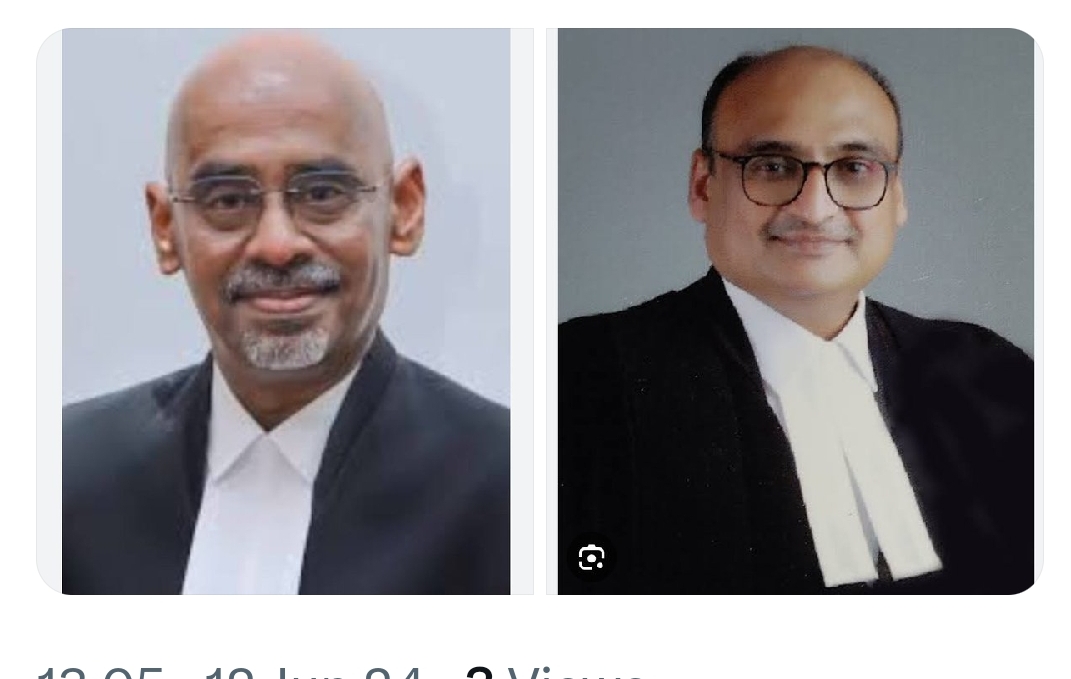Madras High Court to hear habeas corpus petition for YouTuber ‘Savukku’ Shankar’s release in regular course

- NATION
- WORLD
- STATES
- OPINIONS
- CITIES
- BUSINESS
- SPORT
- GOOD NEWS
- MOVIES
- PHOTOS
- VIDEOS
- WEB SCRAWL
- E-PAPER
Advertisement
Madras High Court to hear habeas corpus petition for YouTuber ‘Savukku’ Shankar’s release in regular course
The court, also granted permission to the petitioner, Shankar’s mother, to approach the state government for the temporary release of her son for medical treatment.

YouTuber ‘Savukku’ Shankar. Photo | M K Ashok Kumar
Updated on:
12 Jun 2024, 4:07 pm
3 min read
CHENNAI: The regular bench of Madras High Court assigned for dealing with habeas corpus petitions on Wednesday said that it would hear the petition filed by the mother of jailed YouTuber ‘Savukku’ Shankar praying for quashing his detention under the Goondas Act on ‘regular course’ as per the convention of taking up HCPs chronologically based on the oldest date of detention.
The court, however, granted permission to the petitioner to approach the state government for temporary release for medical treatment.
The HCP filed by Kamala, mother of the YouTuber, had raised a lot of dust since a vacation bench of two judges differed on deciding the case and the third judge made some strong comments against the decision of the presiding judge of the vacation bench. After it was referred to the regular bench, it came up for hearing before the bench of Justices MS Ramesh and Sunder Mohan.
“We have been following the convention of taking up HCPs on the chronological order based on the oldest date of detention. As such, we do not intend to deviate from the convention,” the bench said.
It directed the Registry to list the petition on the ‘regular course’ for final disposal.
However, the bench granted permission to the petitioner to submit a representation to the state government seeking temporary release of the detenu for medical treatment.
The bench told the government to consider the representation on merits and according to the law; and adjourned the hearing by eight weeks.
Senior counsel John Sathyan, appearing for the petitioner, submitted that the detenu Shankar was subjected to torture inside the prison inflicting injuries and trauma.

He wanted the court to issue an order to release him temporarily for medical treatment.
However, Additional Public Prosecutor E Raj Thilak contended that the HCP was not maintainable because the remedy available before the Advisory Committee for Goondas detention was not availed by the petitioner.
It may be noted that Shankar was arrested by the Coimbatore city police on May 4, 2024, and later he was formally arrested in several other cases registered in different districts on the charges of denigrating women police personnel and possession of ganja.
He was detained under the Goondas Act based on the detention order passed by Greater Chennai Police Commissioner on May 12, 2024.
Challenging the detention order, his mother filed the HCP in the Madras High Court. The vacation bench of Justices GR Swaminathan and PB Balaji delivered a split verdict as the former quashed the detention order while the latter stressed on granting time to the police for presenting its case.
Later, the petition was referred to the third judge, Justice G Jayachandran who had stated that Justice Swaminathan showed a ‘semblance of personal bias’ against the state authorities in quashing their order to detain Shankar under the Goondas Act without giving a fair opportunity to the police and not consulting the co-judge in the bench.
Referring the matter to the regular division bench, the judge said the reasons (of being approached by emissaries) triggering Justice Swaminathan to deny the opportunity to the State was ‘more disturbing’ and made his finding on facts ‘liable to be eschewed’ not only for want of completion by the opinion of Junior Judge in the Bench but also for the ‘semblance of personal bias’ against the respondent.
Describing the order of the vacation bench as a ‘unilateral opinion’ of one of the judges without the companion judge’s opinion, he said failure to afford the opportunity to file the counter, when it was sought, and the bias of showing interest in passing order hastily without consulting the bench partner renders the expression of opinion by Justice Swaminathan non est.
He also said, “The Latin maxim ‘Audi Alteram partem’ (no person should be judged without a fair hearing) is the very first lesson taught in law schools in all democratic countries. Issuance of rule nisi (show cause notice) in an HCP is to afford opportunity to the respondent to show cause how the impugned order of detention is sustainable.

